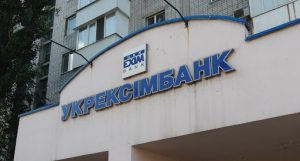
State-controlled Ukreximbank (Kyiv) with the assistance of the World Bank has provided a $22 million loan to Protein-Invest vegetable oil producer.
According to a report on the bank’s website, $14 million was used to refinancing an investment loan, and the company will receive another $8 million as part of a sub-project for the purchase of soybean seeds for further processing.
“Protein-Invest plant is increasing its production capacity, taking into account the global tendencies of increasing the consumption of oilseeds. To meet the needs of the enterprise in a sufficient volume of working capital for the purchase of raw materials, the bank made the most of the program of the International Bank for Reconstruction and Development. The sub-project worth $ 8 million was approved for the project of access to long-term financing, a mandatory criterion for the participation of enterprises in which is an export-oriented activity or the attraction of local supply chains to this direction,” board member of Ukreximbank Oleksandr Ihnatenko said.
Protein-Invest enterprise has a soybean oil extraction plant with a capacity of 700 tonnes per day. It supplies vegetable oil and high-protein meal to the market of Ukraine and other countries, which are further used in the food industry and for the manufacture of animal feed. Production was launched in the village of Dunayivtsi, Khmelnytsky region, in 2019.
According to the unified state register of legal entities and individual entrepreneurs, t
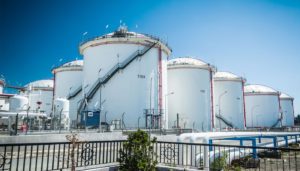
Black Sea Oil Industry LLC (Kyiv) plans to build a vegetable oil refining and bottling complex at the Pivdenny maritime merchandise port (Odesa region).
According to the unified register of environmental assessment, the complex will have an oil refining workshop with a daily capacity of 350 tonnes or an annual capacity of 115,500 tonnes and a vegetable oil bottling workshop with the same capacity.
The bottling workshop will have two plastic bottling lines with a capacity of 10,000 liters per hour and 12,500 liters per hour.
According to the unified public register of companies and private entrepreneurs, the founder of Black Sea Oil Industry LLC is Iryna Hlushets. The company was registered in June 2019.
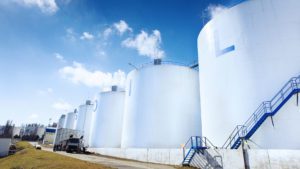
Risoil S.A. plans to install eight new silos at the grain terminal Risoil Terminal in Chornomorsk port and increase the capacity of storage by 105,000 tonnes, to 257,000 tonnes on average (depending on the crops). “This month, the installation of eight new silos begins. The volume of storage will be 105,000 tonnes more. The supplier of silos is AGI, the leading global manufacturer of equipment. It is planned to compete the installation work by the end of 2019,” the group said on Facebook.
Risoil S.A. was established in Geneva (Switzerland) in 2000. Its core business is logistics of oil, bulk and general cargo in the ports of the Black Sea, the sale and production of vegetable oils, trade in grains and oilseeds in containers, storage and processing of agro-industrial products.
The grain terminal Risoil Terminal in Chornomorsk port was put into operation in 2016.
CHORNOMORSK PORT, GRAIN TERMINAL, NEW SILOS, RISOIL, VEGETABLE OIL
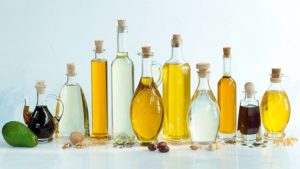
Allseeds, one of the largest producers and exporters of vegetable oil in Ukraine, has expanded the oil storage facilities at a terminal in the Pivdenny port (Odesa region) by 2.4 times, to 100,000 tonnes, according to a posting on the website of the group on Tuesday. “Recently, the capacity of the tank farm here has increased from 42,000 tonnes to 100,000 tonnes for one-time oil storage. The company is ready to fill tankers at seven loading points from six berths belonging to TIS company with a speed of up to 1,200 tonnes/hour,” the company said.
The company said that such capabilities in logistics and active mutually beneficial cooperation with partners allowed Allseeds in April 2019 to set its own transshipment record of about 100,000 tonnes of vegetable oil which corresponds to 1.2 million tonnes per year.
“So far [1.2 million tonnes a year]… Because the development plan implementation of the company’s oilseed-processing and terminal complexes in Pivdenny and its infrastructure continues,” the company said.
Allseeds Group was founded in 2010.
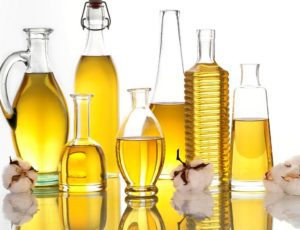
The U.S. Department of Agriculture (USDA) predicts that export of vegetable oil from Ukraine in the 2019/20 agricultural year (September-August) will be 6.12 million tonnes, which is 90,000 tonnes less than in 2018/19 agri-year (6.21 million tonnes).
According to the May report, forecast for oilseed crushing for 2019/20 agri-year were improved by 150,000 tonnes, to 16.8 million tonnes.
USDA said that next agri-year sunflower seed production in Ukraine could decrease by 200,000 tonnes year-over-year, to 14.8 million tonnes, meal – by 123,000 tonnes, to 5.99 million tonnes and oil – by 129,000 tonnes, to 6.24 million tonnes.
Export of sunflower seeds in 2019/20 agri-year should grow by 50%, to 150,000 tonnes, meal – by 6%, to 4.7 million tonnes and oil – by 3.4%, to 5.6 million tonnes.
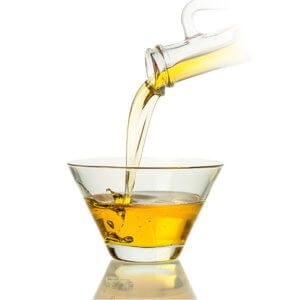
The Dutch Development Bank FMO and Diligent Capital Partners (DCP) jointly acquired 16% in Allseeds S.A. (Luxembourg), the holding company of a large Ukrainian vegetable oil producer and exporter – Allseeds Group.
“We needed to attract additional investments. FMO responded to the proposal and during the year we implemented the deal,” Allseeds Group CEO Viacheslav Petryshche said at a press conference in Yuzhne (Odesa region).
The deal was closed on September 19.
According to a press release from Allseeds, FMO and DCP jointly acquired shares, providing funding for the implementation of the Allseeds development strategy, which includes expanding the capacity for processing oilseeds, transshipment for the export of oils and meal and increasing added value.
As reported, the Antimonopoly Committee of Ukraine allowed the Dutch Development Bank FMO to indirectly enter the capital of Allseeds.
Allseeds Group was founded in 2010. In July 2015, the group commissioned an oil extraction plant at Yuzhny port with a capacity of processing 2,400 tonnes of sunflower seeds per day (or 1,800 tonnes of rapeseeds, or 1,500 tonnes of soybeans).